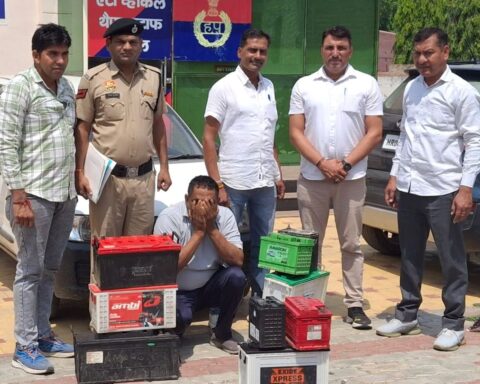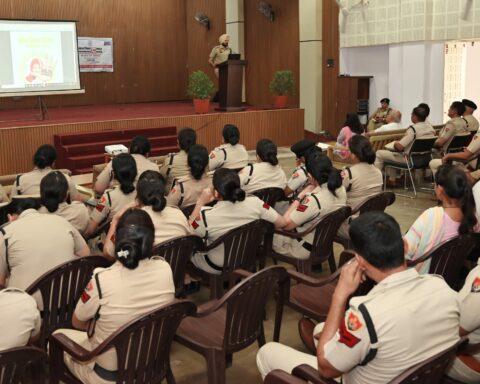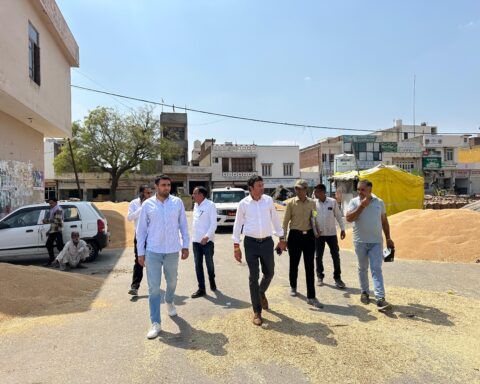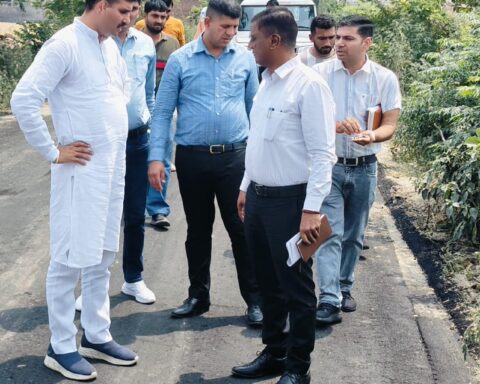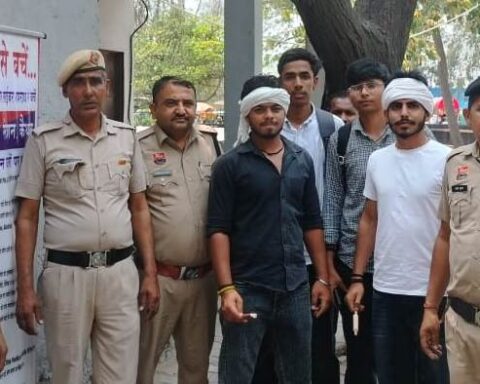Farmers Await Wheat Payment as Corruption Allegations Rise in Cheeka Mandi
In one of Asia’s largest grain markets, Cheeka Mandi, Haryana, tensions are growing among farmers. The delay in wheat lifting has stalled payments worth ₹1.74 billion. The situation has escalated with allegations of corruption and inefficiency within government procurement agencies. Despite the harvest reaching the market in large volumes, poor management has paralyzed payment operations.
Massive Wheat Pile-Up Creates Panic
Cheeka Mandi has seen the arrival of over 872,000 quintals of wheat this season. However, only 81,952 quintals have been lifted by the government so far. That means nearly 790,000 quintals of wheat still lie unsent in the mandi. This delay has caused severe financial stress among farmers, who depend on timely payments to manage daily expenses and farm investments.
Wheat sold to the government is meant to be paid for within 72 hours of procurement. However, this mandate is far from reality. Farmers say it’s been over a week, and no payments have reached their bank accounts.
Farmers Voice Their Frustration
A group of local farmers—Gurbachan Singh, Tarseem Chand, Ram Bhaj, and others—shared their ordeal. They emphasized that under Haryana’s policies, government agencies must pay farmers within three days of purchase.
Yet, the agencies seem indifferent. Wheat that was sold nearly seven to eight days ago has not been paid for. Farmers have started questioning the credibility of the state government’s promises.
According to farmers, when they reached out to commission agents (aadhtis), they were told that payments won’t be processed until wheat is delivered to the government godowns.
Payment Delay Blamed on Barley Sack Shortage
One of the main reasons cited for the delay is the shortage of gunny bags (bardana) used to store and transport wheat. The procurement agencies—Food & Supplies Department and HAFED—have claimed that a few commission agents are hoarding excess bardana.
To address this, the agencies have issued notices. These notices demand agents with excess stock to return the bardana. That way, it can be redistributed to those who lack enough, ensuring the lifting process continues.
Still, this move hasn’t brought visible results. In fact, it has triggered more anger among farmers and agents alike.
Black Marketing Allegations Deepen Crisis
Adding fuel to the fire are allegations by the Bhartiya Kisan Union (BKU – Chadhuni). Leaders like Lakhwinder Singh Kindra, Mahaveer Poonia, and Jarnail Jailey have accused officials of deep-rooted corruption. They claim that the lifting process is deliberately delayed by a nexus of government agencies, the mandi association, and transport contractors.
The core issue, according to them, lies in the “Parchi System.” This system requires a slip from the mandi association for wheat bags to be transported. Without it, no truck is allowed to load or unload wheat.
This has opened doors to alleged illegal bribes, disguised as “transport charges.” Commission agents who refuse to pay these under-the-table fees are denied parchi slips. As a result, their wheat remains stuck in the mandi.
Inside the Parchi Controversy
When asked anonymously, several commission agents confirmed this practice. They stated that without bribes, their stock is left to rot. On the other hand, agents who comply with these “transport charges” get their wheat lifted first.
This practice not only delays the lifting but also blocks payments to the original sellers—the farmers. The BKU has demanded an immediate ban on the parchi system and a swift restart to the lifting process.
Without timely intervention, more wheat will pile up, leading to quality degradation and further losses.
What the Mandi Association Says
In response to these serious accusations, Mandi President Karam Chand denied all corruption claims. He defended the parchi system, saying it merely verifies the goods’ ownership and matches them to approved transport trucks.
He emphasized that the association follows due process and that no unfair advantage is given to any agent.
Officials Promise Swift Action
Officials from the procurement agencies, Surender Jangra and Rajender Kumar, stated that the bardana shortage is being resolved. They added that contractors have been ordered to speed up the wheat lifting process immediately.
They also mentioned that steps are being taken to ensure that all farmers are paid as soon as their produce reaches the godowns.
Still, these promises feel repetitive to farmers who have heard similar reassurances every season.
Public Sentiment Reflects Deep Discontent
The public’s patience is running thin. For families relying solely on agriculture, even a few days’ delay in payment leads to mounting debts and emotional distress. Many feel betrayed by the repeated failure of systems meant to protect farmer welfare.
Moreover, locals argue that if such massive dysfunction can exist in a top mandi like Cheeka, then smaller mandis are likely worse off. They demand stronger oversight, better coordination, and immediate dismantling of corrupt practices like the parchi system.
A Call for Accountability
This crisis raises a serious question: who is responsible? Is it the government agencies, the commission agents, or the transport contractors? Or is the entire system designed to fail those it’s meant to serve?
The government must act before this turns into a full-blown movement. Timely payment is not just a policy—it’s a lifeline.











